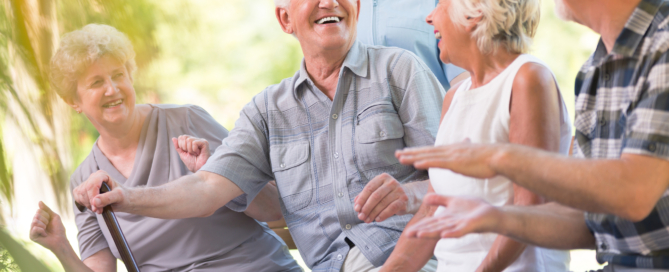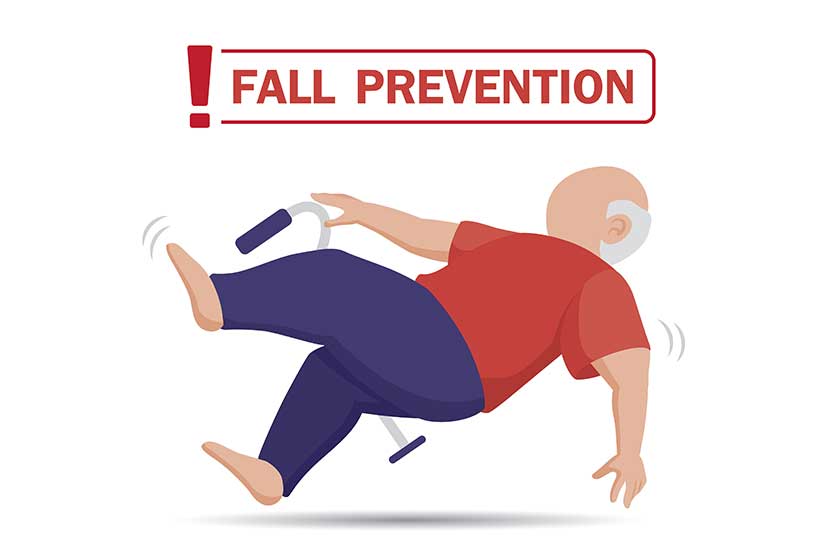
Introduction
As we age, it becomes increasingly important to prioritize our physical and mental well-being. For seniors, maintaining resilience in both body and mind is essential for leading a fulfilling and independent life. In this article, we'll delve into the various aspects of wellness for seniors, exploring strategies to promote physical and mental resilience that can enhance overall quality of life.
Understanding Wellness in Seniors
Wellness for seniors encompasses more than just the absence of illness; it encompasses a holistic approach to health that includes physical, mental, and emotional well-being. Aging brings about changes in the body and mind, but with the right strategies, seniors can maintain resilience and vitality well into their later years.
Physical Resilience
Physical resilience is the foundation of overall well-being for seniors. Regular exercise is key to maintaining strength, flexibility, and cardiovascular health. Activities like walking, swimming, and gentle yoga can improve mobility and reduce the risk of chronic conditions such as heart disease and diabetes. Additionally, a balanced diet rich in nutrients is essential for supporting the body's functions and promoting longevity.

Mental Resilience
Cognitive health is equally important for seniors as physical health. Engaging in brain-stimulating activities such as puzzles, games, and learning new skills can help preserve cognitive function and ward off conditions like dementia. Furthermore, social interaction plays a vital role in maintaining mental resilience. Seniors should prioritize spending time with loved ones, participating in group activities, and seeking support when needed to combat feelings of loneliness and isolation.

Importance of Regular Health Check-ups
Preventive healthcare is crucial for seniors to detect and manage potential health issues before they escalate. Regular check-ups with healthcare professionals allow for early intervention and can help seniors stay on top of their health. Screenings for conditions such as high blood pressure, osteoporosis, and vision problems are especially important for older adults.
Creating a Supportive Environment
The physical environment can greatly impact seniors' well-being and independence. Making homes more accessible with ramps, grab bars, and handrails can prevent falls and accidents. Additionally, utilizing technology such as medical alert systems and home monitoring devices can provide peace of mind for both seniors and their caregivers.

Engaging in Meaningful Activities
Staying active and engaged in later life is essential for maintaining a sense of purpose and fulfillment. Seniors should pursue hobbies and interests that bring them joy and satisfaction. Whether it's gardening, painting, or volunteering in the community, finding meaningful activities can contribute to overall well-being and mental resilience.
Sleep and Rest
Quality sleep is essential for seniors to recharge and rejuvenate both body and mind. Establishing a bedtime routine, creating a comfortable sleep environment, and practicing relaxation techniques can improve sleep quality. Seniors should also address any sleep disorders or disturbances promptly to ensure restful nights.

Managing Chronic Conditions
Many seniors live with chronic health conditions that require ongoing management. It's essential for seniors to work closely with their healthcare providers to develop personalized treatment plans and lifestyle modifications. Adhering to medication regimens, maintaining a healthy diet, and incorporating regular physical activity can help seniors better manage their conditions and improve their quality of life.
Preventing Falls and Injuries
Falls are a leading cause of injury and disability among seniors, but many falls are preventable with proper precautions. Seniors should assess their homes for potential hazards and take steps to minimize risks, such as installing handrails and removing clutter. Additionally, participating in balance and strength exercises can improve stability and reduce the likelihood of falls.

Promoting Independence and Autonomy
Maintaining independence is a top priority for many seniors. By accessing community resources and support services, seniors can continue living independently while receiving the assistance they need. Whether it's transportation services, meal delivery programs, or home care assistance, there are numerous options available to help seniors maintain their autonomy.
Cultivating Resilience Through Positive Mindset
A positive outlook can make a world of difference in how seniors approach aging and life's challenges. Cultivating gratitude, practicing mindfulness, and focusing on the present moment can help seniors maintain a positive mindset and cope with adversity. Embracing change and viewing obstacles as opportunities for growth can foster resilience and resilience in seniors.

Caregiver Support
For seniors who require assistance with daily activities, caregivers play a vital role in providing physical, emotional, and logistical support. It's essential for caregivers to prioritize self-care and seek support when needed to prevent burnout and maintain their own well-being.
Embracing Change and Adaptation
As we age, it's natural for our circumstances and abilities to change. Embracing these changes with flexibility and adaptability can help seniors navigate life's transitions with grace and resilience. By staying open to new experiences and adjusting to evolving needs, seniors can continue to thrive in their later years.
Conclusion
Promoting physical and mental resilience is essential for seniors to maintain their health, independence, and quality of life. By prioritizing wellness through regular exercise, social engagement, preventive healthcare, and a positive mindset, seniors can enjoy a fulfilling and vibrant later life. With the right support and resources, aging can be a journey of growth, resilience, and continued vitality.


0 Comments